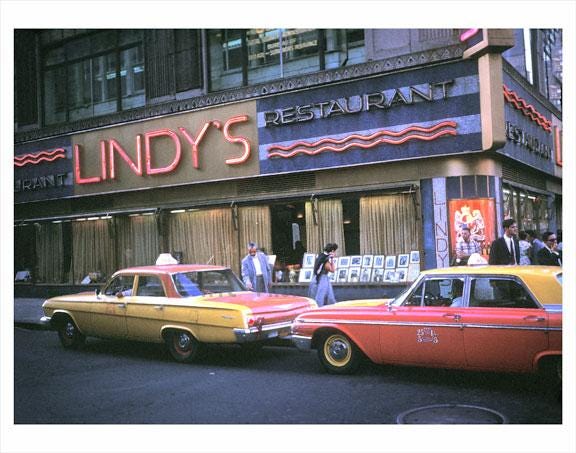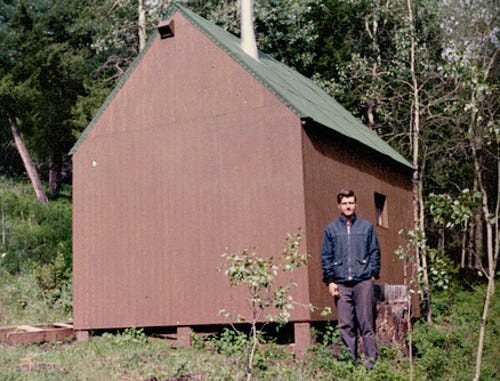If you enjoyed this post, please consider subscribing. Although my articles are free, there is an option to support my work for $7/month or $70 for an entire year if you feel so inclined.
If you’re tight on money but still considering a contribution, please reach out and we can arrange a discounted rate.
We live in a time of unparalleled technological progress.
We also live in a time of unparalleled sadness and un-wellness.
Why exactly is this? It seems like technological progress should bless us with an easier life that we can enjoy to the fullest. Is there some sort of relationship between these two trends that we can’t really see?
More and more, the answer seems to be a resounding "yes". So why then, in a time of such great abundance, does everything feel like it's getting worse? Much of this malaise seems to stem from the fact that we are increasingly disconnected from what it means to be human.
One emergent school of thought looks to eschew the norms of a tech-filled world and instead looks to the past for insights into many of life's seemingly obvious lessons that have been forgotten with the passage of time.
The ideology in question is centered around an old idea called the Lindy Effect. The first reference to the Lindy Effect can be traced back to 1964 to an article from The New Republic called "Lindy's Law". This article discusses the inception of the Lindy Effect, whose name is borrowed from Lindy's Delicatessen, a now defunct diner in New York City.
The hallowed doors of Lindy's Delicatessen welcomed many patrons over it's time in operation, but was most noted as a gathering place for comedians, who would converge on the restaurant to talk shop about the happenings of New York’s comic industry over the past weeks.
There was a loose rule back in the day that a comedian had a set amount of content that he was capable of producing. It follows as such that a comedian that performed very frequently had a shorter overall career than one who performed sparingly over a longer amount of time. Thus, Lindy’s Law was born.
The concept of Lindy's Law was further refined by the somewhat controversial author Nicholas Nassim Taleb, who extended the idea to non-perishables, or anything lacking a natural upper bound in terms of life expectancy.
So what we are left with is this: A non-perishable thing's future life expectancy (relevance) can be modeled as being proportional to its current age.
To paraphrase Taleb's book Antifragile: Things That Gain From Disorder, every day in the life of something perishable (e.g., a person) means one less day on his life expectancy. However, every day for a non-perishable thing (an object or an idea) actually means a longer life expectancy.
Essentially, non-perishable things age in reverse compared to perishable organisms. The longer they stick around, the longer they are expected to stick around in the future.
Lindy’s Restaurant, via Old NYC Photos
What Do We Do With the Lindy Effect?
Old things will probably be around for a long time, so what?
There is a massive body of ancient wisdom and superstition that has been passed down through the generations, some of it being thousands of years old. Although we may not understand or intuit where this wisdom is coming from, it has nonetheless stood the trials of time for a reason- because it is helpful or otherwise integral to the human condition.
The issue here is that many strong-headed young people, upon reaching adulthood have decided to eschew the wisdom of their elders — to live in a way that they believe to be more efficient, more progressive, more correct. This, in combination with the boundless access to information that we have today means that much cultural heritage, tradition, superstition, and ultimately wisdom, has been drowned out.
So by using the Lindy Effect as a heuristic, we can look back to the past and analyze these trends that may have been lost or obfuscated to help us find ways to re-connect with what it means to be human. Don’t mistake this as a call to RETVRN to tradition, or to err toward luddism — it’s simply a tool to live better. In fact, it’s likely best to leverage this knowledge in combination with our modern constructs and technologies as a means to live more authentically (whatever that means to you).
In another world, Ted K might’ve been a Lindyman
Practical Uses
Even after all of this pontification on how to live, it can still be a little unclear what “Lindy“ might actually mean. To push the point home, here are some common uses of the Lindy Effect:
Food: What have our ancestors eaten since the dawn of time? Generally some combination of meat (especially organs and gristly bits) and fruits/vegetables. In other words, whole foods that you can prepare yourself. Contrast this with highly-processed foods like Twinkies or instant ramen (not Lindy).
Clothing: Traditionally, clothing has used a combination of cotton, wool, silk, leather, and a variety of other natural fibers. Polyester/acrylic clothes are doubly not Lindy — on one hand it’s a faddish, toxic material, but also the garments themselves tend not to stand the test of time.
Sun: Humans evolved with the Sun. We are meant to be in the Sun. I’ve talked about this before, but the Sun regulates so many internal processes that we really can’t afford NOT to catch some rays. The relatively new trend of avoiding the Sun at all costs to prevent aging is kind of silly if not outright harmful (it’s understandable if you don’t want your face to look like a leather bag, but applying sunscreen any time you plan on going outside is flat out bad for you).
Walking: Often referred to as flâneuring (or Lindywalking as I like to say), walking is surprisingly beneficial to your mental and physical health. I personally walk 6-10 miles (10-16 km) per day, broken into multiple short walks, mainly as a way to loosen up and organize my thoughts away from the influence of a screen.
Of course the Lindy Effect is not a moral guideline as you may have guessed, given the definition laid out above. Some of the most Lindy things in the world are objectively immoral — for example, prostitution, avarice, plagiarism (a contentious topic at the moment), murder and scams are all Lindy.
So with your new knowledge of Lindy, go out, take a walk around, and get some sun on your eyes. Take a moment to look around your house for items you might be able to get rid of, maybe give grandma a call and ask about any old family recipes or superstitions (they were developed for a reason!), and most importantly just find a way of living that feels natural.
Just remember that this is best used as a heuristic for discerning which ideas have stood the test of time. Look to the past to create a better future!
An ancient Roman fresco depicting the world’s oldest profession
Cover photo: Vanitas Still Life - Pieter Claesz
As always, if you enjoyed this article please like, comment, share, & subscribe. Your interactions are a huge incentive for me to keep making quality content.







